Every year on March 8th, HRPA joins the world in celebrating International Women’s Day (IWD). This day offers an opportunity to celebrate women’s economic, political, cultural and social advancements, while also highlighting the actions that still need to be taken to achieve gender parity.
With 1 in 4 women thinking about putting a hold on their career progression or leaving the workforce entirely, it’s clear that the pandemic has had an outsized impact on women. This has been made worse by long-standing inequities in the workplace including unequal pay, harassment, microaggressions and poor work-life balance. Women of colour, Indigenous women, LGBTQ2+ women, and women with disabilities face all of this at an even greater level.
That’s why we are joining forces with the International Women’s Day initiative to #BreakTheBias. We remain committed to a world where all women are no longer held back by biases, but feel supported and safe in organizations that prioritize gender equity.
International Women's Day Q & A
HRPA is also aligning with the Government of Canada's 2022 theme of #WomenInspiringWomen. We are inspired by so many remarkable women, especially those in HR who continue to defy stereotypes and make strides to elevate the visibility and voice of women in and beyond the workplace.
So, while we couldn't interview all the amazing women in HR, we were fortunate enough to speak to many of these trailblazers for our special feature on International Women's Day. Take some time to read their responses, and watch their videos to learn more about what we all can do to accelerate women's equality.
What does International Women’s Day (IWD) mean to you?
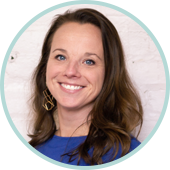
Deidre Falkiner, CHRL, Director, People & Culture at EnPowered
International Women’s Day is a day to celebrate the women that paved the way for me to step into a career in leadership. It’s a time to express gratitude at the opportunities I’ve had to lead and develop strong women, in mostly male-dominated businesses. It’s also a time to think about what more needs to be done when it comes to advancing gender parity and the part I want to play in it at this stage of my career.
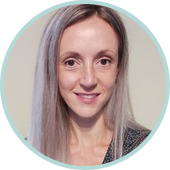
Michelle Preston, CHRL, Head of Talent and Culture, Nuula
Being in a leadership role within the HR space, I see IWD as an important opportunity to encourage employees to come together and have conversations around gender equality and the role we all play each and every day, regardless of gender, in creating workplaces where women can thrive. I love to spend the day celebrating the accomplishments of the amazing women I am fortunate to call my peers and to provide the chance to those who wish to share their stories with the rest of the team to help increase empathy and understanding.
I also take this day as an opportunity to spend time with my two young boys sharing information on why we have IWD and how even at a young age, they can play a role in discrediting harmful gender norms. As they grow older, I hope they can contribute to creating a world where there are equal opportunities and rights for everyone.
Which women inspire you?

Lorena Krasnai, CHRL, Advisor/Educator/Coach,
KLo Human Sustainability
I am inspired by the first HR leader I worked with many years ago, Nerissa Douglas. While I was new in Canada and to the field of HR, I started to pursue my interest for a career in this space, and Nerissa believed in my potential. She saw the spark I had for serving people and organizations and gave me the opportunity to develop and expand in the field. I want to continue to be an HR leader that recognizes the human potential and works with others to reach a place of awareness and acceptance that propels them into action towards becoming their positive authentic self and live in their passion and purpose, the same way I am able to.
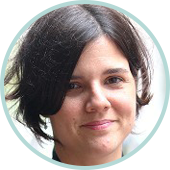
Emilie Le Tual, Director, Enterprise Risk Culture and Ethics
My aunt was a very successful and humble HR leader who built her own path, she has been an inspiration and a mentor – her work ethics, her accountability, her commitment transpired in how she guided me throughout my career. She encouraged me not to be afraid of a new challenge, to trust myself, to continuously grow, and build more empathy. Every day, I learn from my HR peers who have a unique set of experiences, thoughts, and aspirations that inspire me to remain curious, eager, and hungry. While my young daughters are not HR professionals, they inspire me to continue to think big and broad while keeping my feet on the ground.
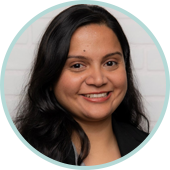
Nupur Khandelwal, CHRL, Sr. Manager, Learning and Talent Development, LCBO
Among the many inspirational leaders that I’ve had the opportunity to work with, I would like to recognize Christina Critelli, Siobhan Calderbank and Marilyn Redfern. These amazing women are authentic and articulate in their approach. They aren’t afraid to go against the grain and do so while bringing others along the journey. Thank you for being such strong role models!
What stereotypes/assumptions of women would you like to see broken?

Michelle Preston, CHRL, Head of Talent and Culture, Nuula
I’m seeing progress in this area but one stereotype which still exists is the thought that women who have children can’t also be/remain career focused. Worse still is the idea that women who take a full/extended parental leave are not career driven and when/if they do return to work, their “head won’t be in the game”. Every woman has their own experience, but this blanket idea is false. Women are great caregivers and at the same time can be ambitious, career-driven people. On the flip side, women who choose to take shorter leaves after having a baby certainly don’t care for their children any less. I also am starting to see more companies offering equal parental leave to all parents regardless of sex and gender. Providing equal support gives men and women more options to choose what works best for themselves and their families. If this is something that is missing at your place of work, I encourage you to speak with your leadership/HR team.

Deidre Falkiner, CHRL, Director, People & Culture at EnPowered
I wish that there wasn’t a double-standard that applied to women in leadership. For example, have you ever heard a man described as “defensive” or extra“? These are typically words that have a negative connotation when associated with women, but when applied to a man they are seen as positive attributes.
Secondly, I do wish that both women and men could take time off for their newborns or kids who are needing to quarantine at home. But, unfortunately, caregiving responsibilities still largely fall on women.
Lastly, I am heartbroken at the step back many women have had to take during the last two years of the pandemic in what Sheryl Sandberg described as a disaster*. We are the caretakers of our families, and many women have had to make the difficult decision to take a different job with more flexibility and less career trajectory as a result.
These three areas are ones that keep me up at night, both as a female in business, but also as a People and Culture Leader. My goal is to be part of the solution.
*Forbes interview: View Sheryl Sandberg article
What’s one piece of advice you'd share with women who are getting started in HR?
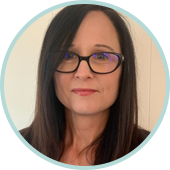
Sandra Barker, CHRP, HR Director, MBRP
My best advice to any woman beginning their HR career would be to not undersell yourself. Just because you may not have the exact qualifications for a potential role doesn’t mean you’re not the best candidate. We all bring a variety of skills, experiences and knowledge to the table and sometimes it’s gained through a different path than others. Know your worth. Don’t hide it.

Sartaj Sarkaria, Chief Diversity Officer & Chief of Staff, Canadian Marketing Association
The piece of advice I wish I had heard sooner is to be curious, be kind and remember your value. Curiosity will lead to learning and growth. Kindness will help you build a support system. Remembering the knowledge and value that you bring to the table will improve your self-confidence and encourage you to contribute to the conversation. I think women starting in HR particularly struggle with that last one. It took me a long time to understand that I had a team supporting me, and that I could lean on them. Once I was able to acknowledge my strengths, I was also able to turn to my team for support in other areas, and to give them space to find their own accountable freedom.

Isha Zade, CHRP, MBA, HR Generalist, World Education Services
I think the first piece of advice I’d share is this: understand the environment you’re working in. This includes the industry, the organization, the people, the culture. HR is not one-size-fits-all and hence it is crucial to understand your space so that you are able to provide constructive and tactical support in your position, and also have a strong business/stakeholder buy-in.
I’d also like to advise women to grab any and all opportunities: present your work, raise your hand for critical projects so you can learn and grow with your team. Be seen, be vocal and be present.
What will be the biggest challenge for the next generation of women?
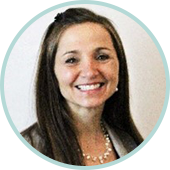
Natalie Parent, Manager of HR, Pioneer Construction, Fisher Wavy
The biggest challenge for the generation of women behind me will be overcoming the “imposter syndrome” brought on by systemic gender bias and inequality. These inequalities result in women struggling to develop an accurate self-assessment of their ability to confidently succeed in their roles. We must consider the historical and cultural context that brought about these inequalities and create an environment that fosters equity and diversity.
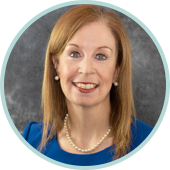
Nancy Brickwood, CHRE, CHRL, BA, Senior Vice President, HR, BGRS
The biggest challenge for the generation of women behind me will be the gender wage gap. In fact, there is still significant ways to go to achieve parity for the next generation of women. Although the pay gap has been narrowing, the progress is slow and there continues to be obstacles in the way of women advancing their careers. Companies need to situate this at the core of their compensation strategy to ensure there continues to be meaningful advancement.
In what ways have you led change in the workplace?

Lorena Krasnai, CHRL, Advisor/Educator/Coach,
KLo Human Sustainability
Championing human sustainability at the individual, organizational, and societal level is my life’s mission, and I live this mission by taking a proactive approach that addresses the root of our challenges as humans, rather than only working on surface issues. Working alongside leaders and their teams to strengthen their resilience, we build mental fitness, develop emotional intelligence, and uncover their authentic identity so that they can show up at their best. My work consists of partnering with leaders wherever they are on the journey, by identifying their needs, enhancing skills through training and coaching, and building healthy habits that rewire the way people think, feel and act for long lasting results.

Nupur Khandelwal, CHRL, Sr Manager, Learning & Talent Development at LCBO; Co-Founder of SheRocks!
I have had the opportunity to lead enterprise-wide transformation impacting about 10,000 employees to integrate learning programs and services with the Human Capital Management System. This involved taking a holistic approach to talent management while working with multiple stakeholders, partners and colleagues to gain buy-in and implement change. The initiative resulted in enhancing the employee experience through easy access to tools, easy navigation to resources and enhanced learning offerings.

Emilie Le Tual, Director, Enterprise Risk Culture and Ethics
Curiosity and empathy have been key drivers in how I approached my various roles and lead large change initiatives over the years. Being curious about my colleagues, about my mandate, and about the core purpose that brought us together enabled me to have the necessary empathy to find pathways that lead to the best outcome possible for all stakeholders. And hopefully, it helped others see the value in adopting a people centric view.
How should organizations support gender diversity in the workplace?

Isha Zade, CHRP, MBA, HR Generalist, World Education Services
One suggestion I have is a women’s leadership development program. This program would basically help women leaders understand all aspects of the business they are involved in so that they can be effective leaders. I also think companies should implement something like the “Women Leader Assimilation Program.” This is aimed at closing the gap between a female/woman business leader and the senior male staff that she will be managing.
Some other small but effective changes in the workplace to support female staff is giving more women the option to transition slowly back into the workforce post-maternity. I also believe organizations need to implement open door policies specifically to support women.

Nancy Brickwood, CHRE, CHRL, BA, Senior Vice President, HR, BGRS
Additional Resources
- Government of Canada – International Women’s Day #WomenInspiringWomen
- Government of Canada – Advancing Gender Equality and Empowering Women and Girls
- Government of Canada – Pay Equity
- Government of Ontario – Workplace Harassment: Investigation by the Employer
- Government of Ontario – Workplace Violence and Workplace Harassment
- UN Women
- International Women’s Day #BreakTheBias
- HRPA-CPHR Survey Results are In (Information on the Gender Pay Gap in HR)
- HRPA HR Insights – More Resources for Diversity & Inclusion in the workplace
- Check out more diverse perspectives from women in HR – 5 HR Professionals Share Perspectives on Black History Month
- HRPA Woman of Distinction Award Winner: Ashira Gobrin
- Women in the Workplace study